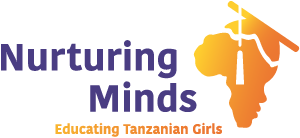A Reflection on SEGA’s English Enrichment Program
My Experience as an English Enrichment Program Volunteer
In October, a group of dedicated teachers and volunteers visited SEGA to implement an English Immersion program to help students gain confidence and fluency in their English speaking skills. This is the thoughtful reflection from one volunteer, Hannah Wilson.
Like so many of the great things in my life, I have my mother to thank for my visit to SEGA. She heard about the English Enrichment volunteer trip and was instantly onboard, and she convinced me to take a month off my consulting job to come with her. It was one of the best decisions I ever made.
Our volunteer group was 14 people: half teachers; the other half willing apprentices. We brought stories, cartoons, poems, letters, and games. I was the designated Music teacher, so I also brought a playlist – everything from The Jackson Five to Rihanna – and lyrics sheets. The volunteer team spent a few days planning and preparing in Dar es Salaam before hopping on a bus and heading out to Morogoro for three weeks at SEGA. When we arrived, I was struck by the students’ enthusiastic welcome (they sang us a welcome song!) and the beauty of the campus, even in the dry season: buildings painted deep reds and yellows; tiled walkways; stunning murals; an open pavilion for meals and community gatherings. I was excited and nervous to teach the incoming Form 1 students.
The volunteers split into pairs, each with an experienced teacher and an assistant. Each pair taught a group of six or seven students for one week at a time. The program’s goal was to improve spoken fluency, so although we incorporated grammar lessons, we focused on spontaneous communication. We started off each day together with Music class, where we listened to songs, sang, and discussed vocabulary, rhyme, and metaphor. Then we split into our small groups. The students read short stories aloud in English and reflected on them. They told us about their day-to-day activities, their families, favorite animals, foods, hobbies and subjects, and their goals for the future. They looked at picture-stories and retold them in English. They interviewed each other, debated each other, gave book reports without notes, and discussed poetry and speeches. In the afternoons, we made art, played games, and shared cultural traditions – we told the girls about Halloween and we dressed up in costumes, and the girls demonstrated drumming, dancing and singing from their villages. One weekend, the school organized an incredible trip to Mikumi National Park, where the girls saw their favorite animals up-close and witnessed the magnificent natural beauty of their country. Through it all, I was extraordinarily proud to watch their skills and confidence improve every day.
I want to share a brief anecdote that captures a lesson I learned at SEGA. One morning, one of my students – who had been consistently animated and eager – came into class sullen and withdrawn. I knew these girls had experienced adversities I found unimaginable. Did this student have PTSD? Had I upset her? I worried all morning. But around lunchtime, like flipping a switch, she was herself again. I joked with her: “You must tell me about your homework tomorrow, since you did not want to earlier.” She grinned. “Yes, Madam,” she said. “I was sad – but time changes.”
“Time changes.” Such wise words! Later, she joked back: “I like being sad, Madam. It is my hobby!” I realized that in my anxiety over the horrors I imagined in her past, I had taken one moody morning as evidence that my student was a victim. She’s not a victim, no matter what she’s been through. She’s a teenager. She has good days and bad days. She’s a tough, smart, irrepressible young woman, just like me.
Witnessing these vibrant, intelligent girls rise to the challenge of learning a tough new language – it’s hard to describe the connectedness, the sameness, the oneness I felt. Hearing my student explain that time changes – time heals – I learned something I thought I already knew: we are not defined by our past. All of these girls have overcome intense hardship and poverty to pursue their dreams and get an education, and I am beyond impressed by them. I am deeply grateful to SEGA for hosting me and the other volunteers and giving us the chance to learn and grow with these amazing students.
Three months later, I am still working through responding to my enormous pile of beautiful handwritten farewell cards. Many of the cards have messages like “We are sorry for all the mistakes we made. Thank you for being so forgiving.” I want to say to them and to the girls around the world who struggle with the same worries: it is okay to make mistakes. It is good to make mistakes. Learning lessons from your mistakes is one of the keys to success. Study hard, and never, never, never give up.
– Hannah Wilson





